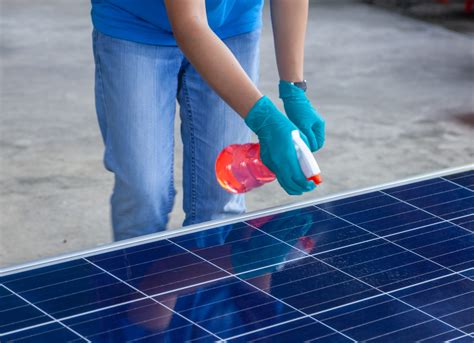How To Clean Solar Panels: A Guide to Maximizing Energy Production
Dirty solar panels can significantly reduce energy output, costing you money and impacting the environment. Regular cleaning is crucial for maintaining peak performance. This guide provides a comprehensive approach to cleaning your solar panels safely and effectively, maximizing their lifespan and energy generation.
Why Clean Your Solar Panels?
Dust, dirt, pollen, bird droppings, and other debris accumulate on solar panels, obstructing sunlight and hindering their ability to generate electricity. Even a thin layer of dirt can reduce efficiency by up to 25%. Regular cleaning ensures you're getting the most out of your investment and reducing your carbon footprint.
The Impact of Neglect:
- Reduced Energy Output: The primary reason for cleaning; dirt acts as an insulator, preventing sunlight from reaching the cells.
- Lower ROI: Reduced energy production translates to a lower return on your solar panel investment.
- Potential Panel Damage: Persistent debris can cause long-term damage to the panel's surface, potentially shortening its lifespan.
How Often Should You Clean Your Solar Panels?
The cleaning frequency depends on several factors:
- Climate: Areas with frequent dust storms or heavy pollen seasons require more frequent cleaning.
- Location: Panels in rural areas with more dust might need cleaning more often than those in urban environments.
- Panel Angle: Steeper angled panels tend to shed debris more effectively.
General Recommendation: Most experts recommend cleaning solar panels every 3-6 months, but visual inspection is key. If you notice significant dirt accumulation, it's time for a cleaning.
What You'll Need to Clean Your Solar Panels:
- Soft-bristled brush: Avoid brushes with stiff bristles that could scratch the panel surface. A long-handled brush is ideal for reaching panels safely.
- Deionized water: Tap water contains minerals that can leave streaks and potentially damage panels over time. Deionized water is the safest option.
- Soft cloths or sponges: For spot cleaning or wiping down after rinsing. Microfiber cloths are excellent.
- A ladder or other safe access method: Never risk your safety; use appropriate equipment to reach your panels.
- Garden hose (optional): For rinsing larger panels.
Step-by-Step Cleaning Guide:
- Safety First: Always disconnect the power to the solar panels before cleaning, if possible. If this isn't feasible, exercise extreme caution and avoid contact with the electrical components. Use appropriate safety equipment, including gloves and safety glasses.
- Pre-Inspection: Carefully inspect the panels for any loose debris that could be easily removed by hand.
- Washing: Gently brush the panels with the soft-bristled brush, using deionized water. Start from the top and work your way down. Avoid excessive scrubbing.
- Rinsing: Rinse the panels with deionized water, ensuring all soap residue is removed. If using a garden hose, maintain a gentle spray to prevent damage.
- Drying: Allow the panels to air dry naturally. Avoid using abrasive cloths or towels that could scratch the surface.
Things to Avoid:
- Harsh chemicals: Avoid using abrasive cleaners, detergents, or solvents, as these can damage the panels' anti-reflective coating.
- High-pressure washers: The high pressure can damage the panel's delicate surface.
- Metal brushes: Metal bristles can scratch the solar panel's surface.
When to Call a Professional:
While cleaning solar panels is often manageable as a DIY task, consider calling a professional for:
- High, hard-to-reach panels: Prioritize safety; professionals have the equipment and training to clean panels safely at heights.
- Extensive soiling: For heavily soiled panels, a professional's expertise and specialized equipment might be necessary.
- Regular maintenance: For larger systems, a scheduled professional cleaning can provide peace of mind and ensure peak efficiency.
By following these tips, you can ensure your solar panels remain clean and efficient, maximizing your energy production and return on investment. Remember that safety should always be your top priority.
